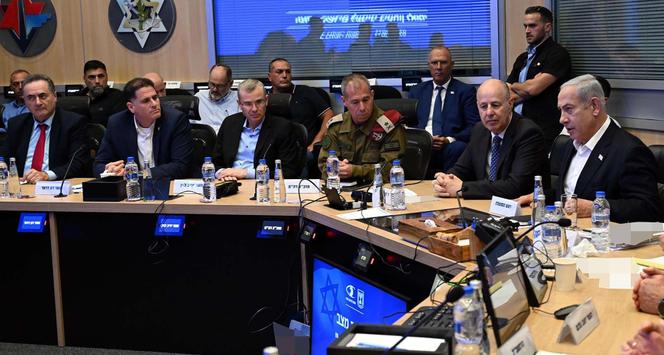


Benyamin Netanyahu has become a wartime prime minister – A contradiction in terms. After 15 years as the Israeli leader most reluctant to embark on a large-scale military operation – which, by its very nature, would be uncertain – he has found himself caught up in the escalation set in motion by Hamas on Saturday, October 7. This attack – which has left over 1,100 people dead – is becoming a kind of 9/11 for Israel: A gaping wound that the country contemplates, all while wondering how it could have come to this.
Netanyahu repeated the phrase three times on Saturday morning, before any other official figure: "We are at war." He spoke on a sidewalk at the Israel Defense Forces (IDF) headquarters in Tel Aviv, then he disappeared from television screens. He consulted the generals and summoned the security cabinet ministers: Men of little experience and radicals whose only interest is mindless escalation, men in whom he has no confidence.
He assured both US President Joe Biden and France's Emmanuel Macron that the war would be "long." He sought to "ensure freedom of action for Israel." Defense Minister Yoav Gallant made only a brief public appearance. Israel's Chief of the General Staff finally spoke, very briefly, on Sunday evening. Meanwhile, residents of villages in southern Israel invaded by Hamas commandos – inaccessible to the army – pleaded for help live on television, saying they couldn't understand why the army still had not come to rescue them, hours after the assault had begun.
In the evening, Netanyahu expressed the "unbearable price" paid by his country in this attack, while two Hamas commandos had barricaded themselves in Israeli villages with hostages. "Hamas wants to murder us all," he said, praying for the wounded and hostages – over 100 of them – whom Hamas has brought to Gaza, and whose fate will have a major impact on the response he is beginning to formulate.
The Israeli Prime Minister spoke of "revenge" and vowed to ensure "that it does not happen again.” As a result, in Gaza, "all of the places which Hamas is deployed, hiding and operating in, that wicked city, we will turn them into rubble," he promised, urging Gazans: "Leave now because we will operate forcefully everywhere."
The army clarified these remarks on Sunday morning, while it was still fighting in several locations in Israel, and preparing to evacuate thousands of Israelis from the outskirts of Gaza. It has no intention of letting Palestinians out of the enclave – the more than 2 million people living there have been under a blockade since 2007 – but it will encourage them to move out of particularly targeted neighborhoods.
You have 65.31% of this article left to read. The rest is for subscribers only.
